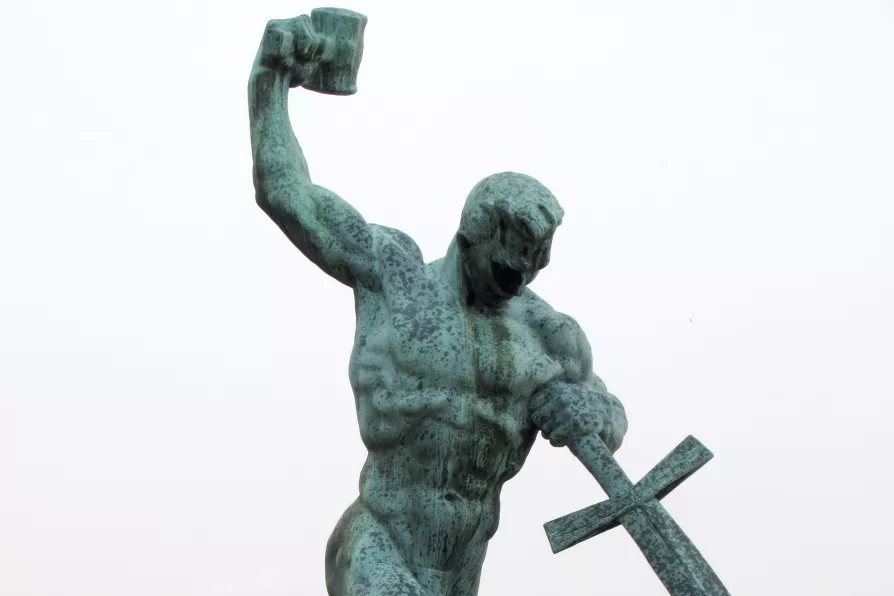John Wojcik pays tribute to a black US activist who spent six decades at the forefront of struggles for voting rights, economic justice and peace – reshaping US politics and inspiring movements worldwide

 WISHFUL THINKING? Created by the Soviet sculptor Evgeniy Vuchetich, the bronze statue ‘Let Us Beat Our Swords into Ploughshares’ was installed in 1959 in the north garden of the United Nations
sculptor Evgeniy
Vuchetich, the bronze
statue ‘Let Us Beat Our
Swords into
Ploughshares’ was
installed in 1959 in the
north garden of the
United Nations
[Magnolia677/CC]
WISHFUL THINKING? Created by the Soviet sculptor Evgeniy Vuchetich, the bronze statue ‘Let Us Beat Our Swords into Ploughshares’ was installed in 1959 in the north garden of the United Nations
sculptor Evgeniy
Vuchetich, the bronze
statue ‘Let Us Beat Our
Swords into
Ploughshares’ was
installed in 1959 in the
north garden of the
United Nations
[Magnolia677/CC]
AT this moment armed conflicts are taking place on all continents apart from North America and Antarctica. We live in a world in which war has become an accepted fact of life.
Homo sapiens is the only species on the planet that deliberately kills its own in huge numbers —and with the grisliest cruelty. All other animals may battle over territory or to obtain a mate, but they rarely kill; their battles are more ritualistic, simply driving the vanquished away.
They are satisfied with the territory or the mate they have or the food they have gathered, they are not driven to want excess. On the other hand, humans are driven invariably by greed and go to war for more land, food, and wealth than they need. Why?

Europe is acquiescing in Trump’s manoeuvrings — where Europe takes over the US forever war in Ukraine while Washington gets ready for a future fight with China. And it’s working people who will be left paying the price, says DIANE ABBOTT MP

In the conclusion of his two-part article, PETER MERTENS reveals that while global military spending hits $2.7 trillion with European arms company profits soaring 1,000%, €1 invested in hospitals creates 2.5 times more jobs than weapons

Real security comes from having a secure base at home — Keir Starmer’s reckless and renegade decision to get Britain deeper into the proxy war against Russia is as dangerous as it is wasteful, writes SALLY SPIERS










